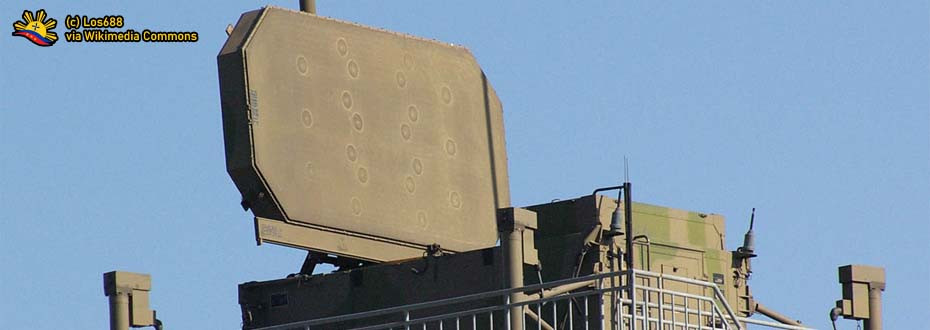 |
At one point, Austal shipbuilding promoted its Offshore Patrol Vessels with local production perks, which should be an advantage for Self Reliance Defense Posture efforts.
From Austal. |
Responsible to the enforcement and monitoring of its application in military and defense-related industrial development, the Office of the Undersecretary of the DTRID, under the Section 5 of the law, has the function that ranges from adopting a defense policy in establishing defense stockpiles to sustain defense operations during the state of emergency which is pertaining to storing ammunitions (Section 5-A), to an advisory recommendation on policies dealing with the National Defense Industry (Section 5-H).
One important highlight of the office’s duties and responsibilities as stipulated in the law’s own provisions is the promotion of having Technology Transfer for local industrial production purposes. This means that any acquisition project that the Philippine military pushes in the upcoming years under the Revised AFP Modernization Program might need this provision that prompts foreign suppliers to comply, which is ideal if the deal comes with bulk orders that takes the economies of scale into consideration.
As a formulator and implementer of the policies within the scope of the Self Reliance Defense Posture Revitalization Act, the DTRID office will be the one who will craft and implement the Implementing Rules and Regulations or IRR of this law, providing the sets of guidelines and provisions that will set direction and limitation for any future defense industrial development that may partake for the country’s burgeoning defense acquisition and industrial efforts.
Of course, the guidelines set by the Office of the Undersecretary of the Defense Technology Research And Industry Development will need to align with other established laws, such as the
Republic Act No. 11293 or the "Philippine Innovation Act," along with the provisions set under the Revised AFP Modernization Program or the Republic Act No. 10349 as part of its ongoing efforts to modernize and enhance its overall capabilities into the current standards.
Aside from promoting Tech Transfers and partnerships on research and development, DTRID also promotes the idea of exporting locally made materiel overseas, especially if the Philippine Defense Industry itself gets matured through time through the full supervision and monitoring of the office.
While the idea is currently far-fetched from the time this writeup gets published, the guidelines provided give precedent that enables the future Philippine Defense Industry to get a significant portion of the global defense market.
With the establishment of the Defense Technology Research and Industry Development Office as an attached unit of the Department of National Defense, the Self-Reliance Defense Posture efforts will now have an office that oversees, monitors, and promotes the local production, research, development, and eventually the export of defense materiel made in the Philippines, while nourishing and improving the Philippine Defense Industry as one key field of the country’s economy, alongside agriculture and office services.
SRDP ACCOMPLISHMENTS AND PROPOSALS
 |
Isuzu Philippines, F. Cura Industries, and FMC Motors, will provide locally produced light carriers for the Philippine Army's own requirements.
Image from Overland Kings, Instagram. |
In this portion of the article that discusses the Self Reliance Defense Posture efforts of the Philippine government through the Department of National Defense regarding the country’s local production of military hardware intended to the Armed Forces of the Philippines and other relevant agencies, the points will delve more on the recent accomplishments, reports, plans, and programs that aims to achieve the vision that the Republic Act 12024 tries to achieve.
There is a likelihood that under the new SRDP law, this partnership will get the preferential treatment in awarding of contracts, which will help the Armed Forces of the Philippines improve its capabilities with locally produced military materiel.
The advantage of securing orders from local business entities like the partnership aforementioned is with the readiness and availability of spare parts for the continuous repair and maintenance support of the military hardware such as a local Troop Carrier Light Truck derived from
Isuzu’s N-series of trucks, in which all of its components can get locally sourced, with commonality shared with the civilian version of the trucks commonly seen traversing on Philippine roads.
The local production of the Philippine Navy’s Acero-class Fast Attack Interdiction Crafts - Missile (FAIC-M) vessels, of which being the country’s derivative of the Shaldag V patrol vessels marketed by Israel Shipyards Limited, come as one of an excellent example for the country’s Self Reliance Defense Posture efforts, of which the contract for the first batch of vessels
come with the provision for the Technology Transfer that enabled the Cavite Yard arrangements on production and assembly of future FAIC-M vessel orders.
Another example is with the
Philippine Aerospace Development Corporation or PADC, whereby they locally assemble the RV-10 and RV-12 aircraft, primarily catering to local flying schools that will hone local pilots into having the skills in flying, taking off, and landing an aircraft.
With this development, there is the likelihood that this might expand into providing the same to government agencies like the Philippine Armed Forces and the Philippine Coast Guard, both to train their pilots and for extra surveillance operations.
The three (3) presented examples are a clear evidence of an ongoing effort related to the Self Reliance Defense Posture or SRDP, especially now that the law related to this posture has now enacted and will probably receive added support in the upcoming years along with the ongoing efforts relating to the Revised AFP Modernization Program. This means that the overall push to have a matured Philippine Defense Industry is in the right direction, eventually helping the Philippine military source its hardware locally.
LOOKING FORWARD
 |
The BRP Tagbanua LC-296 (image above) is a locally produced Philippine Navy ship.
(c) Philippine Fleet. |
Upon the enactment of the Self Reliance Defense Posture Revitalization Act or the Republic Act 12024, the Philippine Defense Industry sees a chance to have a head start with the law being its foundation, which will eventually promote and fostering the local research, development, and production of military materials that is proudly made in the Philippines. It aims to improve the country’s military capabilities, while bolstering a portion of its economy and providing sufficient jobs to the local citizenry.
As the law complements the guidelines and provisions pushed by both the Revised AFP Modernization Program or the Republic Act 10349, and the New Government Procurement Act or the Republic Act 12009, there might be a likely trend that the future acquisition projects of each branch belonging to the Armed Forces of the Philippines will include provisions that mentions Technology Transfer or local production of military hardware, both are primary aims of the newly enacted law.
With the preference pointing to local companies, this might encourage other local firms to secure a joint venture with foreign defense entities to secure a contract with the Armed Forces of the Philippines at a certain project, both aiming to get the needed tools and materiel that the country has, while the locally sourced one's gets integrated on the final product that a local company makes according to the specifications as part of the requirements pushed by the end-user.
Through the years, the Philippines always has the potential to foster and improve its Self Reliance Defense Posture even before the enactment that will set this effort into an official government policy, especially with the endeavors accomplished by various local entities in the past.
Ultimately, the enactment of the Republic Act 12024 provides a promising future for the efforts revolving around the Self Reliance Defense Posture as pushed by the Department of National Defense, as a growing Philippine Defense Industry will decrease the country’s reliance from importing foreign-made military hardware in the country, while assuring its tip-top shape performance with a robust facility on maintaining and repair the purchased platforms, while having an ensured logistics chain of its own.



















.png)




